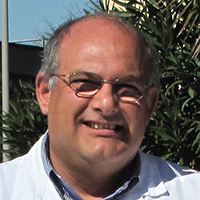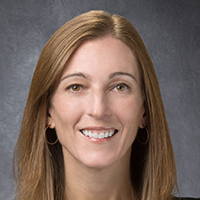Faculty
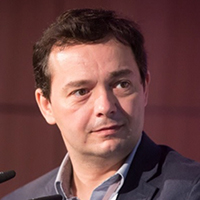
Lionel Ades
Paris, France
Hôpital Saint-Louis
Lionel Ades
Lionel Adès is Professor of hematology at the Hôpital Saint-Louis, and Paris Diderot University, Paris, France. He graduated in Haematology in 2001 and then undertook training in haematology at the Avicenne Hospital and the St Louis Hospital in Paris, before taking up his current position.
Pr. Adès has extensive research experience, having worked as a research fellow from 2006-2010 (INSERM, Institut Gustave Roussy) before graduated with a PhD in 2010. He is conducting several clinical and biological studies in myelodysplastic syndromes and acute leukemia. In these disorders, he has been very active in evaluating novel therapeutics and implementing clinical trials. His research has been published in numerous, well respected journals, including Journal of Clinical Oncology, New England Journal of Medicine and Blood. In addition, Lionel Adès is a member of the American Society of Hematology, the French Group of Myelodysplastic Syndromes and the AFLA Group.
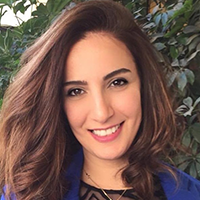
Rita Assi
New York, USA
SUNY at Stony Brook Cancer Center
Rita Assi
Dr. Assi obtained her M.D. degree from the Lebanese University Faculty of Medical Sciences in 2010, followed by a three-year residency in Internal Medicine. Following residency, Dr Assi pursued a fellowship in Hematology/Oncology at AUBMC from which she graduated in 2016. Subsequently, Dr. Assi completed an additional two-year fellowship in the diagnosis and management of leukemia at The University of Texas MD Anderson Cancer Center in Houston and graduated in July 2018.
Dr. Assi is a member of several prestigious international organizations and societies, and has been bestowed several honors and awards. She is the author of more than 50 peer-reviewed publications in prestigious and high-impact scientific international journals.
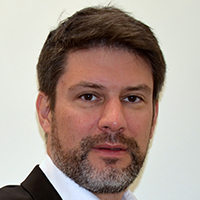
Nicolas Boissel
Paris, France
Hôpital Saint-Louis
Nicolas Boissel
Nicolas Boissel is Head of the Adolescent and Young Adults Unit, Department of Haematology, Saint-Louis Hospital, and Professor of Medicine at University Paris Diderot, Paris, France. After beginning his career as a research fellow at the Pasteur Institute and as an intern at Paris Municipal Hospitals, he did a PhD at the Department of Immunology at Saint-Louis Hospital in 2002 while completing his MD at the University of Paris VI. In 2005, he went on to become Assistant Professor at Saint-Louis hospital in the Acute Leukemia unit headed by Professor Hervé Dombret, before taking up his current position in 2010. He is engaged in therapeutics for patients with bone marrow disorders including acute leukaemia, lymphoma, and aplastic anaemia, with a specific focus of adolescent and young adult comprehensive care. He is the chairman of the French Oncohematology Group for Adolescents and Young Adults (GO-AJA). As member of French national cooperative groups for acute lymphoblastic leukaemia (GRAALL) and acute myeloid leukaemia (ALFA), he is involved in many trials designed to improve the outcome of acute leukaemia patients. His clinical research interests include the role of new oncogenic events and minimal-residual disease to stratify therapeutic approaches in acute leukaemia, and the development of immunotherapy in the field.
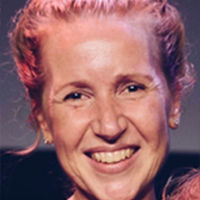
Annoek E. C. Broers
Amsterdam, The Netherlands
The Netherlands Erasmus Medical Centre
Annoek E. C. Broers
Annoek Broers is internist-hematologist with specific expertise in the field of allogeneic hematopoietic stem cell transplantation. Since 2022 she is director of the stem cell transplantation program at the Erasmus MC Cancer Institute in Rotterdam, the Netherlands.
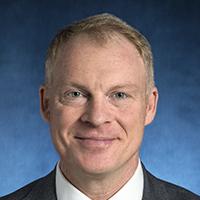
Patrick A. Brown
Baltimore, USA
The Johns Hopkins Hospital
Patrick A. Brown
Dr. Patrick Brown is Professor of Oncology and Pediatrics and Director of the Pediatric Hematologic Malignancies Program at the Sidney Kimmel Comprehensive Cancer Center at Johns Hopkins University School of Medicine in Baltimore.
Dr. Brown’s research focuses on developing new therapies for childhood leukemia – specifically, leukemias with very low cure rates. His laboratory is working to develop new treatments that can overcome resistance to chemotherapy and that, unlike chemotherapy, selectively target leukemia cells. He is a principal investigator of several clinical trials that are testing promising novel targeted drugs. He practices at the Johns Hopkins Hospital Children’s Center in Baltimore.
Dr. Brown is the Vice Chair for relapse and an executive steering committee member of the Acute Lymphoblastic Leukemia (ALL) Committee in the Children’s Oncology Group, and he co-chairs the National Comprehensive Cancer Network’s Clinical Guidelines Panels for Adult ALL and Pediatric ALL.
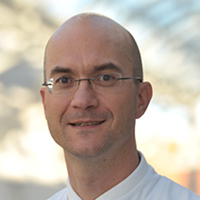
Lars Bullinger
Berlin, Germany
Charité Berlin
Lars Bullinger
Lars Bullinger holds a full professorship for “Hematology and Oncology” and is the Medical Director of the Department of Hematology, Oncology and Tumorimmunology at the Virchow Campus of the Charité University Medicine in Berlin. His work is concentrating on translational research with a focus on the integrative analyses of “omics” and NGS data with the aim to further refine molecular tumor classification and to implement insights into innovative precision medicine approaches. In addition, Lars Bullinger’s work is also aiming to further advance innovative treatment concepts for hematological malignancies such as acute myeloid leukemia (AML) and he is coordinating the Charité Leukemia Program.
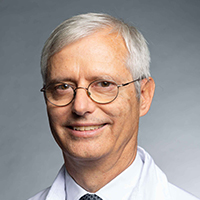
Yves Chalandon
Geneva, Switzerland
Hôpitaux Universitaires Genève
Yves Chalandon
Yves Chalandon is born in Geneva and has made his studies in Geneva. He is board certified in Internal Medicine and in Hematology. He did a fellowship in Vancouver on hematopoietic stem cell transplantation and his research work was on leukemogenesis with Connie Eaves (Terry Fox Laboratory). When coming back to Geneva he has been highly involved in allogeneic hematopoietic stem cell transplantation and hematological malignancies. His research work is on immune reconstitution post alloHSCT, on chronic malignancies at the EBMT (CMWP), on alloHSCT at the SFGM-TC and on hematological malignancies, mainly leukemia within the leukemia group of SAKK and the GRAALL group for ALL. He is member of numerous society (ASH, EHA, EBMT, SSH, SSIM, SAKK, SBST, SFGM-TC, GRAALL) and was president of the leukemia group of the SAKK from 2007 to 2013 and member of the SAKK board during the same period. Since July 2012 he has been appointed head of the hemato-oncology & bone marrow transplantation unit and full professor in the Hematology Division of the University Hospital of Geneva (HUG) and since January 2017 Head of the Hematology Division at HUG. He is the actual chair of the CML subcommittee of the CMWP of the EBMT and vice chair of the GRAALL group.
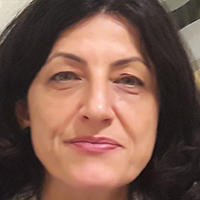
Sabina Chiaretti
Rome, Italy
Sapienza University of Rome
Sabina Chiaretti
I am currently an Assistant Professor in the Department of Cellular Biotechnologies and Hematology at the Sapienza University of Rome, Italy. After obtaining medical degree and residency in haematology in the Pediatric and Day Units at Sapienza University, I carried out a PhD at Sapienza University and at the Dana–Farber Cancer Institute in Boston, USA, focusing on genome-wide technologies, for the in depth analysis of lymphoid (both chronic, and mainly acute) malignancies.
My main clinical focus is on the management of adult acute lymphoblastic leukaemia, both in terms of translational research as well as development of clinical trials: PI/coordinator of most of the italian clinical trials on acute lymphoblastic leukemia.
PI of 3 academic grants.
Member of the GIMEMA (Gruppo Italiano Malattie Ematologiche dell’Adulto) and of the EWALL.
Author/co-author of more than 100 peer-reviewed manuscripts.
Author/co-author of 4 book chapters.
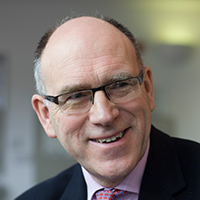
Charles Craddock
Birmingham, United Kingdom
Queen Elizabeth Hospital
Charles Craddock
Charles Craddock is Professor of Haemato-oncology at the University of Birmingham and Director of the Blood and Marrow Transplant Unit at the Queen Elizabeth Hospital. He trained in haematology at the Hammersmith Hospital in London, the Institute of Molecular Medicine at the University of Oxford, and the University of Washington in Seattle, USA. Professor Craddock is Chair of the UK Stem Cell Strategic Oversight Committee and was Medical Director of Anthony Nolan from 2010–2014. He was elected President of the British Society of Haematology in 2017. He drove the establishment and subsequent expansion of the £7 million Centre for Clinical Haematology at the Queen Elizabeth Hospital and, as Director of Birmingham Health Partners, led the development of the £24 million Birmingham Institute of Translational Medicine, which opened in 2015. Professor Craddock’s main research interests include the development of novel drug and transplant therapies in myeloid leukemias and he leads the UK Haemato-oncology Trials Acceleration Programme. He pioneered the development of a UK stem cell transplant trials network, IMPACT, one of only two worldwide, which was launched in 2017. He has published more than 200 papers in peer reviewed journals. Professor Craddock was awarded the CBE for services to medicine and medical research in the 2016 New Year’s Honours list and elected a Fellow of the Academy of Medical Science in 2020.
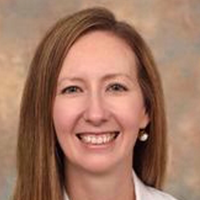
Emily Curran
Cincinnati, USA
Cincinnati College of Medicine
Emily Curran
Emily Curran, MD, is an assistant professor in the Department of Internal Medicine Division of Hematology Oncology at the University of Cincinnati College of Medicine.
Dr. Curran’s clinical interest focuses on the care of patients with hematologic malignancies and, in particular, acute leukemia. Her particular area of expertise is in treatment of adolescent and young adult (AYA) patients with hematologic malignancies.
Dr. Curran received her medical degree from Stanford University in Stanford, California and completed her residency in internal medicine at the University of Chicago in Chicago, Illinois. She also completed her fellowship training at the University of Chicago clinical pharmacology and pharmacogenomics, with a research focus on developing novel therapies and treatment approaches for patients with acute leukemia and translating these discoveries to the clinical setting.
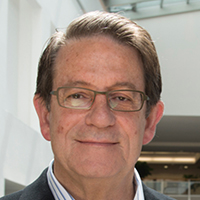
John DiPersio
St Louis, USA
Washington University School of Medicine
John DiPersio
Dr DiPersio has focused on developing novel targeted therapies for enhancing the outcomes of allogeneic stem cell transplant for patients with acute leukemia. Dr. DiPersio’s research focuses on fundamental and translational aspects of leukemia and stem cell biology. Over the past 30 years, Dr. DiPersio has established himself as a leader in the field through his leadership and membership on committees and organizations such as American Society of Hematology (ASH), multiple NIH, CIRM, LLS and CPRIT Study Sections, NIH Special Emphasis Panels and the NCI’s Board of Scientific Counselors. His >420 papers and consistent peer-reviewed funding demonstrate his scientific expertise. He is an elected member of ASCI and AAP, past president of the ASTCT (2018-19) and the recipient of the prestigious AACR Joseph H. Burchenal Memorial Award for Outstanding Achievement in Clinical Cancer Research in 2014, the ASH Mentor Award for Clinical Investigation in 2014 and a NCI R35 Outstanding Investigator Award in 2017.
Dr. DiPersio played a key role in the clinical development of plerixafor as a mobilizing agent for stem cell transplantation. His group was the first to show that disruption of the interaction of AML with bone marrow stromal cells using CXCR4 inhibitors sensitized AML cells to chemotherapy. His recent studies have focused on the development of novel methods of targeting the hematopoietic niche through the development of highly active small molecule inhibitors of CXCR4, VLA-4 and agonists of CXCR2 for both stem cell mobilization and chemosensitization. Dr. DiPersio was the first to implicate JAK1/2 signaling in GvHD via genetic and pharmacologic inhibition of INFR and IL-6R pathways. His preclinical work and early clinical trials led to the first drug ever approved by the FDA (ruxolitinib) for the treatment of steroid refractory acute GvHD. Recent studies by the DiPersio lab have uncovered the mechanisms by which JAK inhibitors alter T cell biology and have led to the identification of ‘best-in-class” JAK inhibitors for the prevention and treatment GvHD in man.
Dr. DiPersio played a critical supporting role in the sequencing of the first cancer genome and a leadership role in identifying genetic and epigenetic factors that contribute to relapse in AML. He was the first to show that rare subclones present at the time of diagnosis often are responsible for AML relapse. Recently, his group was also the first to show that epigenetic downregulation of HLA Class II antigens on AML blasts was associated with immune escape and relapse after allogeneic transplantation4. These observations have profound implications for how we diagnose, stratify and treat patients with AML. Finally, Dr DiPersio and his team have developed several exciting new bi-specific agents for the treatment of AML and lead the first trial of a bi-specfic DART (CD123 x CD3) in AML. Most recently, he and his team have utilized CRISPR/Cas9 gene-edited CART to CD7 and CD2 for the treatment of T cell hematologic malignancies. This represents the first viable off-the-shelf targeted CART therapy for T-ALL and T-NHL5. This has resulted in >20 patents and co-founding of two companies (Magenta Therapeutics, Cambridge MA and WUGEN, St Louis MO).
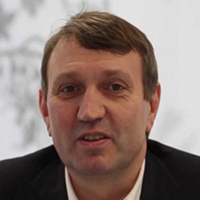
Hervé Dombret
Paris, France
Hôpital Saint Louis
Hervé Dombret
Hervé Dombret, M.D., is Professor of Hematology at the University of Paris, France. He is Director of the Saint-Louis Institute for Research in Hematology, Immunology and Oncology (member of the Paris Alliance Cancer Research Institutes) and Head of the Clinical Adult Hematology Unit at Hospital Saint-
Louis (AP-HP) in Paris. Professor Dombret’s areas of scientific interest include clinical and translational research on acute leukemia (AML and ALL), as well as preclinical and early clinical R&D in this field. He is President of the Group for Research on Adult ALL (GRAALL) and the Acute Leukemia French Association
(ALFA). He is also member of the European LeukemiaNet (ELN) expert panels for AML and ALL, Chair of the European School of Haematology (ESH), Associate Editor for Blood, and reviewer for many journals including the New England Journal of Medicine, Blood, the Journal of Clinical Oncology and The Lancet. Professor Dombret has authored or co-authored more than 350 articles in international peer-reviewed journals, with an h-index of 83.
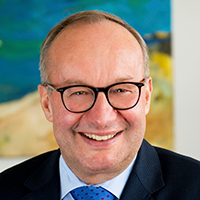
Hermann Einsele
Würzburg, Germany
University Hospital Würzburg
Hermann Einsele
Hermann Einsele, MD, FRCP, is Full Professor of Internal Medicine and has been Director of the Department of Internal Medicine II of the University Hospital Würzburg, Germany, since 2004.
Following his medical training at the Universities of Tübingen, Manchester, and London, Professor Einsele became a research fellow in the Department of Haematology, Oncology, Rheumatology, and Immunology at the University of Tübingen, Germany. He was board certified in Internal Medicine in 1991 and in Haematology/Oncology in 1996. In 1999 was promoted as an Associate Professor. He is a visiting professor at the Fred Hutchinson Cancer Research Center in Seattle, WA, USA, and at the City of Hope Hospital, Duarte, CA, USA.
2011-2015 Hermann Einsele was Vice Dean of the Faculty of Medicine of the University of Würzburg, since 2015, he is Vice President of the University of Würzburg and since 2020 Chair of the German Society of Hematology and Medical Oncology (DGHO).
In 1999, he became Chairman of the German Study Group Multiple Myeloma. In 2003, he received the van Bekkum Award, the highest Annual European award for research in the field of stem cell transplantation. In 2011, he was elected as an Honorary Fellow of the Royal College of Pathologists (London) and in 2012 Nobel Lecturer Stem Cell Biology/ Transplantation, Nobel Forum Karolinska Institute. Since 2014, he was elected as a member of the Academy of Sciences and Literature, Mainz and 2017/2018/2019 as an ISI “Highly Cited Researcher” in the category Clinical Medicine.
Prof. Einsele is expert in the field of multiple myeloma, stem cell transplantation, CAR T cells, bi-specific antibodies and adoptive immunotherapy.
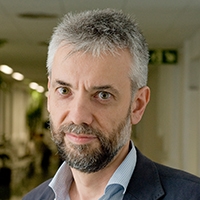
Jordi Esteve
Barcelona, Spain
Hospital Clinic Barcelona
Jordi Esteve
Consultant, head of Hematology department at Hospital Clínic of Barcelona and Associate Professor at University of Barcelona. Clinical research focused on the analysis and design of risk-adapted protocols in AML, within the Spanish Cooperative group CETLAM (co-chair, Group for the Study and Treatment of Acute Myeloid Leukemia), and development of new therapeutic strategies. Leader of a team devoted to translational research in AML in the Research Foundation IDIBAPS (Institut de Investigacions Biomèdiques August Pi i Sunyer). Co-chair of the molecular markers subcommittee of the Acute Leukemia Working Party (European Society for Blood and Marrow Transplantation, EBMT), aimed to analyze the impact of molecular markers on the outcome of HSCT in acute leukemia. Member of the Euroean Hematology Association-Scientific Working Group (EHA-SWG) on AML. Member of main national (Catalan Society of Hematology/SCHH, Spanish Society of Hematology & Hemotherapy/SEHH) and international Hematology associations (European Hematology Association/EHA, EBMT, and American Society of Hematology/ASH).
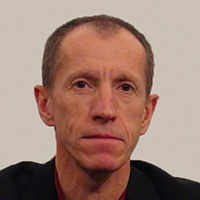
Pierre Fenaux
Paris, France
Hôpital Saint Louis
Pierre Fenaux
Pierre Fenaux trained at the University Hospital of Lille, France, where he became Professor in Hematology in 1993. Between 2002 and 2013 he founded and was head of the clinical hematology section at Hôpital Avicenne, Paris 13 University. He then moved to Hôpital St Louis, Paris 7 University to create a new clinical hematology section for myeloid disorders in the elderly, which he currently chairs. He is involved in clinical and laboratory research in the field of myelodysplastic syndromes (MDS) and acute myeloid leukemia (especially promyelocytic leukemia). He is a founding member and chairman of the French-speaking MDS group (Groupe Francophone des Myélodysplasies) and of the French APL group (GT-LAP). He is also a member of the board of directors of the MDS Foundation. He is the author of numerous scientific articles in peer-reviewed journals.
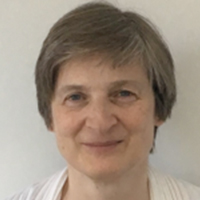
Sylvie Freeman
Birmingham, United Kingdom
University of Birmingham
Sylvie Freeman
Sylvie Freeman is Professor of Immunohematology at Birmingham University, UK and director of its Clinical Immunophenotyping Service for the diagnosis and monitoring of hematological malignancies. Her training as a haematologist clinician scientist in Oxford with further clinical work at UCL, Bristol and Birmingham focussed her interests onto predicting treatment resistance in acute myeloid leukemia and myelodysplasia. She developed flow cytometric MRD detection for the UK NCRI acute myeloid leukemia trials and co-leads a combined immunophenotypic and molecular MRD monitoring strategy in these trials. Ongoing efforts to advance and optimise the detection of residual leukemic cells in trials and routine clinical practice have been strengthened by a network of collaborations with national and international leukemia colleagues that includes the European LeukemiaNet AML MRD Working Group and American Society of Hematology ICAL Laboratory committee.
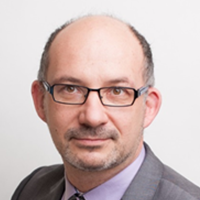
Sebastian Giebel
Gliwice, Poland
Maria Sklodowska-Curie Institute-Cancer Center
Sebastian Giebel
Prof. Sebastian Giebel is an internal medicine, hematology and clinical transplantation specialist. He is head of the Department of Bone Marrow Transplantation and Onco-Hematology and Deputy Director for Clinical Matters in Maria Sklodowska-Curie National Research Institute of Oncology in Gliwice, Poland. Prof. Giebel is the President of the Polish Adult Leukemia Group (PALG) and the Polish Lymphoma Research Group (PLRG), the Secretary of the Acute Leukemia Working Party of the European Society for Blood and Marrow Transplantation (EBMT), board member of The Polish Society of Hematology and Transfusion Medicine, member of the European Working Group for Adult Acute Lymphoblastic Leukemia. An author of over 200 scientific papers, mainly in the field of hematology and hematopoietic cell transplantation. In 2017 he was awarded Jedrzej Sniadecki Medal of the Polish Academy of Sciences, the highest national distinction in the field of medicine.
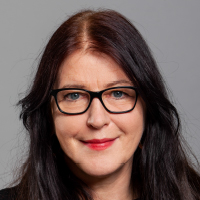
Nicolas Gökbuget
Frankfurt, Germany
Klinikum der Johann Wolfgang Goethe-Universität Frankfurt
Nicolas Gökbuget
Nicola Gökbuget is head of the Study Center of the Department of Hematology/Oncology and the University Cancer Center (UCT) at the University Hospital of the Goethe University Frankfurt, Germany. She is also among the Scientific Task Force Directors at the UCT, the principal investigators of the German Consortium for Translational Cancer Research and the Frankfurt Cancer Institute.
Since more than 20 years she serves as Coordinator of the German Multicenter Study Group for Adult Acute Lymphoblastic Leukemia (GMALL) with more than 140 participating hospitals all over Germany. She Chairs the study group for more than 10 years and has founded and established a national registry ALL with an associated biobank. The GMALL Study Center is a national reference center for adult ALL which provides comprehensive services including advice in challenging situations of clinical management. She is also board member of the German Network for Acute and Chronic Leukemias and the European Leukemia Network (ELN) and founding member of the European Working Group for Adult ALL.
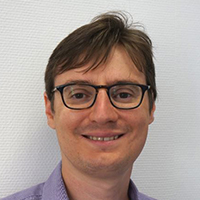
Raphaël Itzykson
Paris, France
Hôpital Saint Louis
Raphaël Itzykson
Hematology Department, Hôpital Saint-Louis, Assistance Publique-Hôpitaux de Paris, Université de Paris, Paris, France
INSERM U944, Saint-Louis Institute for Research
Raphael Itzykson is Professor of Hematology at Université de Paris, and member of the Hematology Department of Hôpital Saint-Louis in Paris, France. His research focuses on the use of precision medicine tools in AML and on the treatment of CMML.
Pr Itzykson has published more than a hundred articles in peer-reviewed journals. He is an active member of the GFM (Groupe Francophone des Myelodysplasies) and ALFA (Acute Leukemia French Association) cooperative groups.
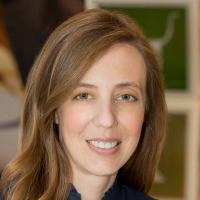
Shannon Maude
Philadelphia, USA
Children’s Hospital of Philadelphia
Shannon Maude
Dr. Shannon Maude is an oncologist in the Cancer Immunotherapy Program at the Children’s Hospital of Philadelphia and an Assistant Professor of Pediatrics at the University of Pennsylvania Perelman School of Medicine. After earning her undergraduate degree in Biology from the University of Virginia, Dr. Maude received her M.D. and Ph.D. from the University of Pennsylvania School of Medicine, and completed her residency in pediatrics as well as a fellowship in pediatric hematology-oncology at the Children’s Hospital of Philadelphia. Dr. Maude served as Fellowship Director of the Cancer Immunotherapy and BMT Fellowship at Children’s Hospital of Philadelphia and currently serves as a Medical Director in the Center for Cellular Immunotherapies at the University of Pennsylvania and leads clinical trials of engineered T cell therapies for childhood cancers. Dr. Maude has a special interest in novel therapies for acute lymphoblastic leukemia, particularly targeted therapy approaches and engineered T cell therapy.
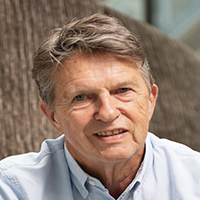
Gert Ossenkoppele
Amsterdam, The Netherlands
Amsterdam UMC
Gert Ossenkoppele
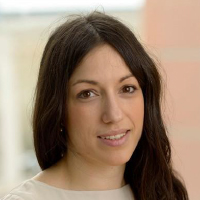
Elli Papaemmanuil
New York, USA
Memorial Sloan Kettering Cancer Center
Elli Papaemmanuil
Dr Elli Papaemmanuil, PhD is an assistant professor at the Computational Oncology Service, Department of Epidemiology and Biostatistics at Memorial Sloan Kettering Cancer Center and is also serving as Associate Director for the Center of Hematological Malignancies. Dr Papaemmanuil earned her bachelor and masters degrees in human molecular genetics from the University of Glasgow, UK and a PhD in population genetics at the Institute of Cancer Research at the University of London. Her research involved the characterization of germline predisposition loci in childhood ALL by means of population genome wide association studies. Dr Papaemmanuil pursued postdoctoral research at the Wellcome Trust Sanger Institute under the mentorship of Peter Campbell where she led research into the discovery of cancer gene drivers of hematological neoplasms. More recently, Dr Papaemmanuil has developed experimental and analytical methods to support molecular characterization of large patient cohorts and study the genetic and clinical inter-relationships of leukemias. She currently leads large population genomic profiling studies in myeloid neoplasms (AML, MDS, MPN) and in Acute Lymphoblastic Leukemia with the aim to characterize how the molecular architecture of the disease and the corresponding clonal relationships determine clinical phenotype and response to therapy. She leads the computational oncology group for the center of heme malignancies at MSKCC and the pediatrics precision medicine initiative where she oversees all molecular profiling studies in leukemia as well as all pediatric cancers. Dr Papaemmanuil has published in top tier journals to include publications in NEJM, Nature Genetics, Nature Medicine, Blood. She is a Josie Robertson Investigator, a former ASH and EHA fellow, a recipient of the Damon Runyon Innovator grant as well as funding from the V Foundation, Gabrielle’s angels foundation and Evans foundation amongst others.
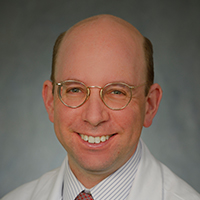
Alexander Perl
Philadelphia, USA
Perelman Center for Advanced Medicine
Alexander Perl
Alexander Perl, MD is a member of the leukemia program in the Abramson Cancer Center of the University of Pennsylvania and an Associate Professor of Medicine at the Perelman School of Medicine. He has been a faculty member at Penn since 2003. His clinical and research expertise are in molecularly-targeted therapeutics for acute leukemia and he played a key role in the clinical development of FLT3 inhibitors for AML. Dr. Perl’s laboratory focuses upon late pre-clinical drug assessment, pharmacodynamic analysis of targeted agents from trials, and analysis of resistance mechanisms to targeted therapy.
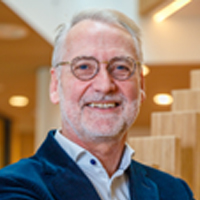
Rob Pieters
Utrecht, The Netherlands
Princess Maxima Center for Pediatric Oncology
Rob Pieters
Rob Pieters is Chief Medical Officer (CMO) at Princess Máxima Center for Pediatric Oncology and Professor of Pediatric Oncology at the University of Utrecht, both in Utrecht, The Netherlands.
In 1987 he obtained his MSc in human movement science and his MD at the Free University of Amsterdam and in 1991 his PhD with a thesis on drug resistance in leukemia. After finishing his training in pediatrics in 1995, he received a clinical fellowship in pediatric oncology from the Dutch Cancer Society. He was Head of Pediatric Oncology/Hematology at the Erasmus MC-Sophia Children’s Hospital in Rotterdam, and was a full professor in Pediatric Oncology at Erasmus University Rotterdam from 2000-2017 and since 2017 a full professor in Pediatric Oncology at the University of Utrecht. Rob Pieters is initiator and one of the founders of the Princess Máxima Center for Pediatric Oncology. This national center has merged all expertise from all former childhood cancer centers in the Netherlands, thereby establishing the largest center in Europe for treatment and research of childhood cancer.
Rob Pieters’ research is focused on the development of personalized therapies for childhood acute lymphoblastic leukemia (ALL). He chairs and/or is member of many boards of international childhood cancer study groups. In 2018 he received a Royal knighthood decoration as Officer in the Order of Oranje Nassau for his achievements for children with cancer. Rob Pieters published >600 book chapters and papers in peer-reviewed journals, has supervised >50 PhD students and is a frequent speaker at international congresses.
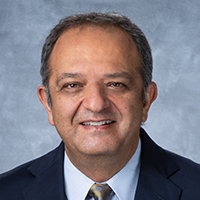
Fahrad Ravandi
Houston, USA
University of Texas
Fahrad Ravandi
Dr. Farhad Ravandi is Janiece and Stephen A. Lasher Professor of Medicine and Chief of Section of Acute Myeloid Leukemia in the Department of Leukemia at the University of Texas – M. D. Anderson Cancer Center. He graduated from the University of London, England and undertook residency and fellowship training at the Baylor College of Medicine and The University of Texas M.D. Anderson Cancer Center. During this time he specialized in the management of hematological malignancies and stem cell transplantation. He then joined the University of Illinois at Chicago as the director of leukemia program and the interim director of stem cell transplant program for three years until he joined the Leukemia department of M. D. Anderson in 2003. Dr. Ravandi is board certified in Internal Medicine, Hematology and Medical Oncology. His main areas of interests are therapy of acute myeloid leukemia, as well as rare leukemias including Philadelphia positive acute lymphoblastic leukemia, hairy cell leukemia and T-cell leukemias. He has authored several book chapters and many articles in peer-reviewed journals. He is a member of several professional societies including the American Society of Hematology, American Society of Clinical Oncology, and Society of Hematological Oncology and is a member of editorial board of several journals.
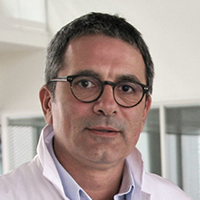
Christian Récher
Toulouse, France
Cancer Research Center of Toulouse
Christian Récher
Prof. Christian Récher is head of the Hematology department at Toulouse-Oncopole Cancer University Institute in France. After completing medical internship in Paris, he joined the Toulouse University Hospital in 2001 to develop the AML research program. He is the AML disease group chairperson for the French Innovative Leukemia Organization (FILO, formerly GOELAMS) since 2016. His doctoral research studies contributed to the knowledge of cell signaling and chemoresistance in preclinical models of AML. He is also co-PI of a research team on chemoresistance and oncometabolism in AML at the Cancer Research Center of Toulouse. Prof. Récher has published more than 250 research papers to date.
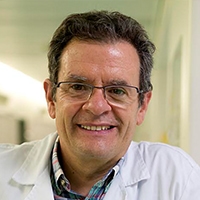
Josep Ribera
Barcelona, Spain
Josep Carreras Leukaemia Research Institute
Josep Ribera
Professor Josep-Maria Ribera is a practising physician and researcher. He is the Director of the Stem Cell Transplantation Unit at the Hospital Universitari Germans Trias i Pujol (HUGTP) and Head of the Clinical Hematology Department for the Catalan Institute of Oncology (ICO) also at HUGTP. He joined the Josep Carreras Institute at its creation and participated in the process of creation of the Acute Lymphoblastic Leukemia research group.
Prof. Ribera has been Associate Professor of Medicine at the Autonomous University of Barcelona (UAB) since 2003. He teaches post-graduate courses at the UAB, University of Barcelona, the Universidad Internacional Menéndez y Pelayo, and the Escuela Nacional de Sanidad as well as carrying out other varied teaching duties.
His work and publications have made him well known internationally and he is a member of the Steering Committee for acute lymphoblastic leukemia of the European LeukemiaNet and the European Working Group for Adult Acute Lymphoblastic Leukemia (EWALL).
Prof Ribera’s research focuses on the study of new treatment approaches and prognostic factors in adult acute lymphoblastic leukemia and he collaborates closely with the Lymphoma research group in the study of therapy and prognosis in HIV-related lymphomas.
He has authored/co-authored more than 400 published clinical papers and 90 book chapters on Haematology, Oncology and Internal Medicine.
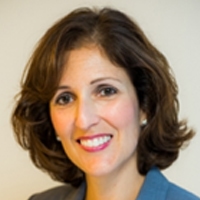
Gail Roboz
New York, USA
Weill Cornell Medicine
Gail Roboz
Dr. Roboz is a leading expert in developmental therapeutics and novel clinical trial design for acute leukemias, myelodysplastic syndrome, and myeloproliferative disorders. She is the principal investigator on numerous investigator-initiated, cooperative group, and industry-sponsored clinical trials in these areas and has authored many related manuscripts and abstracts. Dr. Roboz serves on the Leukemia Core Committee for the Alliance clinical trials in oncology and is the Weill Cornell Principal Investigator for the MDS Clinical Research Consortium. She chairs the clinical committee of the European Leukemia Net (ELN) working group on minimal residual disease in acute myeloid leukemia. She also serves on the Scientific Advisory Board of the Aplastic Anemia and MDS International Foundation. Dr. Roboz has played an active role as a chair, speaker and panelist at numerous national and international conferences and is the recipient of prestigious honors and awards in the field.
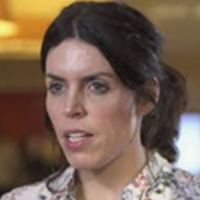
Claire Roddie
London, United Kingdom
University of London
Claire Roddie
Claire is a Consultant Haematologist at UCLH and Associate Professor in Haematology at UCL with a particular interest in adoptive cell therapies. She completed an Immunotherapy PhD at UCL with Karl Peggs and subsequently undertook a clinician scientist role with Martin Pule to develop the UCL CAR-T program. Claire’s current role involves pre-clinical development of novel cell therapy projects, GMP manufacture and clinical trial design. She is also responsible for the advanced therapies clinical service at UCLH.
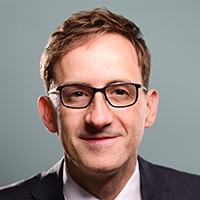
Christoph Röllig
Dresden, Germany
Universitätsklinikum TU Dresden
Christoph Röllig
Christoph Röllig, MD, received his medical training at the Free and Humboldt Universities of Berlin, Germany, and graduated in 1998. From 1999 to 2006, he did his internship in internal medicine and hematology and oncology at the University Hospital in Dresden, and became a certified specialist for internal medicine in 2005 and for hematology and medical oncology in 2006. From 2006 to 2007, he did a master in Public Health and Health Services Research at the London School of Hygiene and Tropical Medicine in London, UK. From 2007 to 2008 he worked in evidence-based medicine and guideline development at the Agency for Quality in Medicine in Berlin, Germany. Since 2009, Christoph Röllig has been working as a consultant hematologist and head of the hematological Clinical Trial Unit at the University Hospital in Dresden. Since the same year, he has been leading the central study office of the Study Alliance Leukemia (SAL) study group as SAL secretary. In 2019, he was appointed Professor of Medicine of the University in Dresden, Germany. He has acted as principal investigator in several phase II and III trials evaluating treatment optimization in AML and published several papers on the topic of AML prognostication and treatment.
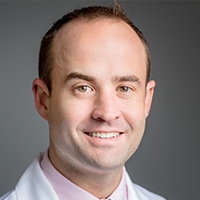
David Sallman
Tampa, USA
Moffitt Cancer Center
David Sallman
David Sallman, MD, is an assistant member in the Department of Malignant Hematology at Moffitt Cancer Center and assistant professor in the Department of Oncologic Sciences at the University of South Florida, both in Tampa. He earned his medical degree from the University of South Florida College of Medicine and completed an internal medicine residency at Massachusetts General Hospital before completing a hematology/oncology fellowship at Moffitt Cancer Center. He is board certified in medical oncology, hematology, and internal medicine.
Dr Sallman’s clinical interests are myelodysplastic syndromes (MDS), acute myeloid leukemia (AML), and myeloproliferative neoplasms. His research interests focus on the development of novel targeted therapeutic strategies (phase 1 and 2 clinical trials) for patients with MDS and AML, based on the underlying mutational drivers of each disease. Specifically, he studies the genetic drivers of myeloid diseases to improve prognostication for patients and to allow for more personalized treatment. He has published significantly on this topic, including recently in highly regarded journals such as Leukemia and Haematologica, and these works are the foundation of clinical trials/translational studies designed to improve the quality of life and survival of patients with MDS. He is the principal investigator for multiple ongoing studies focused on higher-risk MDS. Furthermore, his recent work has focused on TP53-mutant MDS, where he and his team identified and validated that the clonal burden of TP53 mutation is strongly concordant with patient outcomes and are intimately tied with the clinical trajectory of these patients. Additionally, they have identified that serial next-generation sequencing has significant prognostic value and can be an early biomarker of outcome with novel agents. He has been the lead principal investigator for a phase 1b/2 clinical trial of APR-246 in combination with azacitidine for the treatment of TP53-mutant MDS and AML patients, a proposal that was developed at American Society of Hematology Clinical Research Training Institute. This trial has been one of the highest impact studies in high-risk MDS, and the data from this trial support the registrational, randomized phase 3 trial that ideally will lead to the first molecularly targeted approval for MDS. This work has led to funding support from Moffitt Cancer Center and the Edwards P. Evans Foundation of the MDS Clinical Research Consortium and an Dresner Foundation Early Career Award to support his career goals as an innovative clinical/translational investigator in MDS.
Dr Sallman has authored or coauthored numerous articles, books, book chapters, and abstracts and serves as reviewer for multiple journals. He received the Young Investigator Grant from the MDS Foundation in 2017 and he won the Best Abstract Award at the Moffitt Research Symposium in 2016.
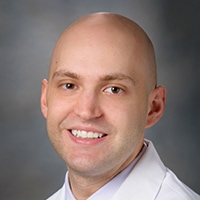
Nicholas Short
Houston, USA
The University of Texas MD Anderson Cancer Center
Nicholas Short
Dr. Nicholas Short is an Assistant Professor in the Department of Leukemia at The University of Texas MD Anderson Cancer Center in Houston, Texas. He attended Baylor College of Medicine for medical school, and then completed internal medicine residency at Brigham and Women’s Hospital, followed by hematology/oncology fellowship at The University of Texas MD Anderson Cancer Center.
Dr. Short is a clinical and translational investigator in adult leukemias, with a particular emphasis on measurable residual disease and the development of phase I and II clinical trials of novel agents and combinations for patients with acute leukemias. Dr. Short has authored over 125 peer-reviewed manuscripts and numerous abstracts that have been presented at national and international conferences, including the American Society of Hematology and the American Society of Clinical Oncology. For his accomplishments in the field of leukemia research he has received a number of awards, including the American Society of Clinical Oncology Young Investigator Award and the American Society of Hematology Junior Faculty Scholar Award in Clinical Research.
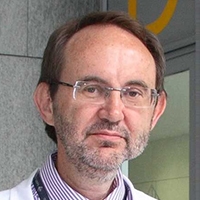
Jorge Sierra
Barcelona, Spain
Hospital de la Santa Creu i Sant Pau
Jorge Sierra
Since 1997, Dr Jorge Sierra has been the Director of the Hematology Department and Hematopoietic Transplantation Program at the Hospital de la Santa Creu I Sant Pau, Barcelona.
Dr Sierra graduated in medicine and surgery in 1979 and from 1980 to 1983 he trained in hematology at the Hospital Clínic of Barcelona (Profs. Ciril Rozman and Emili Montserrat), receiving his PhD from the University of Barcelona. Between 1995 and 1996, he was a visiting scientist at the Unrelated Donor Transplant Program, Fred Hutchinson Cancer Research Center, Seattle. He was Vice-Dean of the Faculty of Medicine of the Autonomous University of Barcelona where he became a full Professor of Medicine in 2006. His research interests include the clinical impact of molecular alterations in acute myeloid leukemia and the novel modalities of AML treatment and hematopoietic transplantation.
He is President of the Spanish CETLAM cooperative group for study of acute myeloid leukemia, and a board member of the PETHEMA Foundation. Dr Sierra has been President of the Spanish Society of Hematology (term 2016-2019) and also a board member of the José Carreras International Leukemia Foundation. Until June 2015 Dr. Sierra was member of the Executive Committee of the European Hematology Association (EHA). For four years he also served as co-chair of the Acute Leukemia Committee of the Center for International Blood and Marrow Transplant Research and was a member of the advisory board. Other past appointments were Director of Research of the Blood and Tissue Bank of Catalonia and Coordinator of the Health and Life Sciences Division of the Catalan Agency of Research. Dr Sierra has published more than 400 peer-reviewed articles in journals such as New England Journal of Medicine, JAMA, Lancet, Nature Reviews in Clinical Oncology, Blood, Leukemia, and the Journal of Clinical Oncology among others.
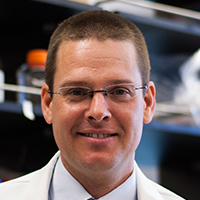
David Spencer
St Louis, USA
Washington University School of Medicine in St Louis
David Spencer
David Spencer MD, PhD is an Assistant Professor of Medicine in the Division of Oncology, an Assistant Professor of Pathology and Immunology, and Medical Director of the CLIA-Licensed Environment at the McDonnell Genome Institute at Washington University in St. Louis, Missouri, USA. Dr. Spencer earned his MD and PhD in the combined Medical Scientist Training Program at the University of Washington in Seattle. His graduate studies took place in the Department of Genome Sciences with human genome pioneers Bob Waterston and Maynard Olson. His thesis work was on the development and application of methods to sequence and analyze large regions of the human genome and included one of the first uses of hybridization-capture to identify disease-causing mutations in the human genome. Dr. Spencer completed his residency training in Clinical Pathology and a fellowship in Molecular Genetic Pathology at Washington University/Barnes-Jewish Hospital in St. Louis, Missouri, during which he was involved in developing one of the first targeted gene panels for detecting cancer mutations. Following his clinical training, Dr. Spencer did post-doctoral research in the laboratory of renowned cancer biologist Tim Ley, where he studied the genomics and epigenomics of acute myeloid leukemia (AML). He led studies that defined the effects of decitabine treatment on DNA methylation in primary AML samples, identified functional differences between AML subclones, investigated the mechanism involved in HOX gene regulation in normal hematopoiesis and AML, and characterized the landscape of DNA methylation changes that occur in primary AML samples with mutations in the de novo DNA methyltransferase DNMT3A.
Dr. Spencer’s research program is focused on improving the genetic diagnosis of AML and our understanding of its molecular pathogenesis at the level of the genome. His lab studies the regulation of the HOX gene family and how the chromatin regulator CTCF organizes the three-dimensional structure of the HOX locus and influences functional interactions with regulatory enhancers in normal hematopoietic cells and in AML. He also studies patterns of DNA methylation in AML and how these changes relate to recurrent mutations, and the mechanisms by which altered DNA methylation influences genome architecture and gene regulation. Dr. Spencer directs the CLIA-Licensed Environment clinical sequencing laboratory, which supports clinical trials involving sequencing of tumor samples, including AML. The laboratory also performs sequencing of patient samples for clinical tests available at Washington University, including clinical gene panel assays for solid tumors and myeloid malignancies, whole exome sequencing of tumors for tumor vaccine studies, and targeted sequencing for inherited diseases. Dr. Spencer is also a co-developer of ChromoSeq, a clinical whole genome sequencing assay for genomic profiling of AML and MDS, which is currently in use for routine diagnostic testing of all AML patients at Barnes-Jewish Hospital in St. Louis. Dr. Spencer’s work has been supported by grants from the National Cancer Institute, the American Society of Hematology, the American Cancer Society, The Cancer Research Foundation, and The Doris Duke Charitable Foundation.
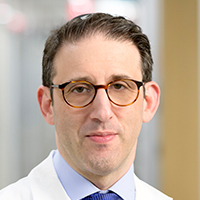
Eytan Stein
New York, USA
Memorial Sloan Kettering Cancer Center
Eytan Stein
Eytan M. Stein, MD is an Assistant Attending Physician, Clinical Investigator and Director of the Program for Drug Development in Leukemia on the Leukemia Service at Memorial Sloan Kettering Cancer Center. He conducts novel, phase I clinical trials of compounds that target the genetic and epigenetic basis of myeloid malignancies. Dr. Stein led the clinical studies of the IDH2 inhibitor Enasidenib and the IDH1 Inhibitor Ivosidenib in patients with relapsed and refractory AML that led to their FDA approval in 2017 and 2018, respectively. He also leads a variety of phase 1 clinical trials and serves as the lead investigator at Memorial Sloan Kettering for the BEAT AML master clinical trial. His current research focuses on elucidating mechanisms of resistance to IDH inhibitors and the use of Menin inhibitors in patients with MLL-rearranged acute leukemia. His work has been published in journals such as Nature, Nature Medicine, The New England Journal of Medicine, JAMA Oncology, Cancer Discovery and Blood. In addition, he serves on the Editorial Boards of Blood and Leukemia and Lymphoma.
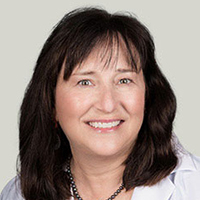
Wendy Stock
Chicago, USA
The University of Chicago Medicine
Wendy Stock
Dr. Stock is a tenured Professor of Medicine at the University of Chicago Medicine.. At a national level, she serves as co-chair of the Leukemia and Leukemia Clinical and Correlative Sciences Committees in the Alliance, a NCI-sponsored clinical trials cooperative group that leads national and international trials in leukemia clinical research, and served as the first chair of the NCI national clinical trials network (NCTN) Leukemia Steering committee, the committee which sets the agenda for all NCI sponsored large phase II and III trials in leukemia in the United States.
Dr. Stock is an expert in clinical and correlative laboratory research involving acute leukemias. Her focus has been to design biologically risk-adapted clinical trials for patients with acute leukemias, leading national trials for treatment of acute lymphoblastic leukemia (ALL) that have helped to change the standard of care for young adults with this disease. Dr. Stock has also established a young adult leukemia clinic at the University of Chicago which she runs jointly with her pediatric colleagues and which is committed to providing innovative research trials and clinical care to this patient population. Her work has focused on identifying new biological prognostic factors and molecular evaluation of minimal residual in specific subsets of leukemia that lead to novel clinical trial design..
Dr. Stock has published more than 200 peer-reviewed papers, reviews and book chapters and serves as Associate Editor of Blood Advances. She also served on the American Board of Internal Medicine hematology board that prepares the board certification examination in hematology. She has received a number of awards including the Gold DOC award for humanism in medicine, and is listed as a “Top Doctor” by both Chicago magazine, Newsweek magazine and US News and World Report. In 2014, she was awarded an endowed chair, the Anjuli Seth Nayak Chair for Leukemia Research, by the University of Chicago. In 2016, she received the Arthur Rubinstein Mentorship award from the University of Chicago department of Medicine. In 2017, she received the Distinguished Clinician award from the Biological Sciences Division of the University of Chicago. In 2018, Dr. Stock was awarded a director’s scientific leadership award by the National Cancer Institute and the Researcher of the Year award from the Leukemia and Lymphoma Society of America.
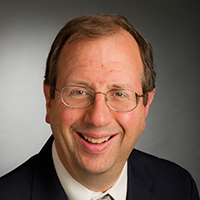
Richard Stone
Boston, USA
Dana Farber Cancer Institute
Richard Stone
Richard Stone, MD, is the Chief of Staff at Dana-Farber Cancer Institute (DFCI). He is also Director of Translational Research for the Leukemia Division of Medical Oncology at DFCI, and Professor of Medicine at Harvard Medical School. Dr. Stone is nationally recognized for his translational and clinical research concerning blood and bone marrow malignancies including acute leukemia, myeloproliferative disorders and myelodysplastic syndrome [MDS] (a bone marrow failure state that may convert to leukemia).
In addition to his work at Dana-Farber, Dr. Stone serves as Chairman of the Leukemia Core Committee for the national cooperative trials group, Alliance. He is a Vice Chair of the National Comprehensive Cancer Network (NCCN) MDS panel and is also a member of the NCCN AML panel. He has been the Chair of the Medical Advisory Board of the Aplastic Anemia and MDS International Foundation, the Chair of the ABIM Oncology Board, and served on the editorial boards of Leukemia Research, Blood and Journal of Clinical Oncology.
Dr. Stone has extensively participated in teaching medical students, residents, and fellows, as well as graduate medical education courses on leukemia and related disorders. He is the author of many academic papers that have been published in the New England Journal of Medicine, Blood, Leukemia as well as numerous other journals. He had a significant leadership role in the development of five new drugs for the treatment of acute myeloid leukemia (AML) that were approved in the past two years.
Dr. Stone earned his medical degree from Harvard Medical School in 1981. He completed his internal medicine residency training and served as Chief Medical Resident at Brigham and Women’s Hospital. He completed his hematology-oncology fellowship at Dana-Farber.
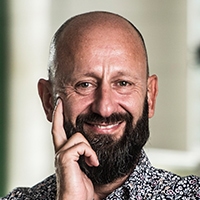
Jan Trka
Prague, Czech Republic
Second Faculty of Medicine, Charles University
Jan Trka
Jan Trka graduated from the Faculty of Paediatric Medicine (currently Second Faculty of Medicine), Charles University in Prague. He started his career as a paediatric haematologist and was working as a research fellow in CCRI in Vienna (T. Lion lab; 1994) and University of Bristol (C.G. Steward lab; 1997-1998). In 1995, he established the first molecular diagnostic laboratory for the diagnosis and research in paediatric leukaemias in the Czech Republic. He received his Ph.D. in molecular genetics and in 2007, he was appointed a Professor of Medical Genetics. In 2004, he was appointed a Head of the Laboratory Centre at the Department of Paediatric Haematology and Oncology and in 2007 a Vicedean of the Second Faculty of Medicine. Together with Ondrej Hrusak and Jan Zuna he founded Childhood Leukaemia Investigation Prague (CLIP), originally an informal group, currently an established centre which has become a trademark of paediatric leukaemia research and diagnostics in the Czech Republic and the reference laboratory for the entire Czech Republic and Slovakia. His research focuses on the molecular diagnosis and residual disease monitoring in childhood leukaemias, the origin and development of the leukaemic clone and translational research in the field and it has been cited more than 6 000x. Jan Trka served two terms as a Chairman of the Biology and Diagnosis Committee of the International-BFM Group, a world-leading consortium of the groups treating paediatric haematological malignancies, worked in three ASH Committees and he is an active member of EuroMRD and EuroClonality-NGS Groups of ESLHO.
Currently, he mainly focuses on the facilitation of research of his younger and more talented colleagues.
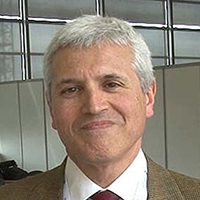
Adriano Venditti
Rome, Italy
Università di Roma “Tor Vergata”
Adriano Venditti
Professor Adriano Venditti is an Associate Professor at the Department of Hematology at the University Tor Vergata, Rome, Italy.
After earning his medical degree from the Sapienza University of Rome, Rome, Italy, Professor Venditti obtained board certification in haematology from the University Tor Vergata. He subsequently completed two fellowships in the UK, as a Research Fellow at the Department of Immunology, Royal Free Hospital, London, and as a Visiting Fellow at the Department of Haematology and Cytogenetics, Royal Marsden Hospital, London.
Professor Venditti is a member of numerous international haematology and oncology societies, including the Italian Adult Haematological Diseases Group (GIMEMA), the European Organisation for Research and Treatment of Cancer (EORTC), and Italian Society of Hematology. Professor Venditti is also a member of the Minimal Residual Disease European LeukemiaNet (MRD ELN) work package and the chairman of the acute leukemia WP of the GIMEMA.
He has published more than 200 manuscripts in peer-reviewed journals.
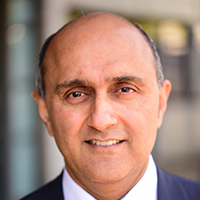
Paresh Vyas
Oxford, United Kingdom
University of Oxford
Paresh Vyas
Professor of Haematology at Oxford University. He studied medicine at Cambridge then Oxford. After completing his medical and haematology training in London. He did his PhD with Professor Higgs and Professor Sir Weatherall at the MRC Molecular Haematology Unit, Oxford and did a three years doing a post-doctoral fellowship with Professor Orkin at Harvard University. He is a research active Consultant Haematologist with a clinical practice in myeloid disorders (MDS, AML and MPD) and allogeneic stem cell transplant in Oxford and the MRC Molecular Haematology Unit, Weatherall Institute of Molecular Medicine, University of Oxford. His research focuses on molecular and cellular biology of AML and MDS with specific interest in purification and therapeutic targeting of myeloid preleukaemic and leukaemic stem cells. He studies single cell biology in both normal and leukaemic haemopoiesis.
He is on the UK AML and MDS clinical trial groups. He is co-Lead of the Oxford BRC Haematology Theme, is on the Board of NHSBT, vice-chair of the MRC Clinical Training Panel, Translational Lead for the UK Therapy Acceleration Program. He works with Celgene on the IDH inhibitor program and is global lead for the AML-005 study.
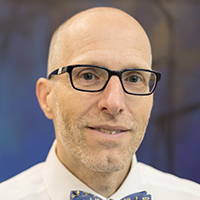
Roland Walter
Seattle, USA
Fred Hutchinson Cancer Center
Roland Walter
Dr. Walter is currently an Associate Professor in the Clinical Research Division at the Fred Hutchinson Cancer Research Center, an Associate Professor of Medicine in the Division of Hematology/Department of Medicine at the University of Washington (UW), and an Adjunct Associate Professor in the Department of Laboratory Medicine and Pathology as well as the Department of Epidemiology at the UW. His research is focused on acute myeloid leukemia (AML), particularly the improvement of antibody-based therapies both by optimizing the efficacy and safety profile of existing therapeutics as well as through the preclinical and early clinical development of novel antigen-directed immunotherapies. A major area of interest lies in the delineation of the mechanisms of action and resistance that are relevant for these therapeutics and the rational development of combination therapies that can overcome drug resistance. In clinical studies, Dr. Walter conducts trials testing novel treatments and innovative care approaches for AML patients. Furthermore, he has an interest in using large patient datasets to develop and improve diagnostic and prognostic tools for AML.
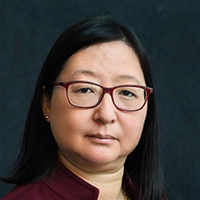
Eunice Wang
Buffalo, USA
Rosewell Park Comprehensive Cancer Center
Eunice Wang
Eunice S. Wang, MD is Chief of the Leukemia Service and Professor of Oncology in the Department of Medicine at Roswell Park Comprehensive Cancer Center. She directs the Roswell Park Hematological Procurement Shared Resource and is Physician Leader for the Roswell Park Chemotherapy/Infusion center. She also serves as an associate professor in the Department of Medicine, Jacobs School of Medicine, University of Buffalo, Buffalo, NY. Dr. Wang earned her medical degree from the Keck (University of Southern California) School of Medicine and completed internal medicine residency at Yale-New Haven Hospital followed by hematology-oncology fellowship training at Memorial Sloan Kettering Cancer Center, NY, NY.
Dr. Wang has an active clinical practice caring for patients with acute leukemias, myeloid malignancies, and other hematological disorders. Her clinical research program is focused on early phase clinical trials of novel therapies, particularly small molecular inhibitors and immunotherapy for acute leukemia and myeloid malignancies. She leads a translational laboratory investigating the role of the marrow microenvironment in acute myeloid leukemia. She is the prior recipient of an NIH Cancer Clinical Investigator Team Leadership Award (CCITLA) and an American Cancer Society Mentored Research Scholar award. To date, she has authored/co-authored over 150 peer-reviewed clinical and translational research articles in hematological malignancies and has mentored over 50 trainees.
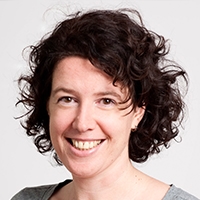
Marielle Wondergem
Amsterdam, The Netherlands
Amsterdam UMC
Marielle Wondergem
Marielle Wondergem works at the Amsterdam University Medical Centers, with a special interest in education and integrated diagnostics of blood and bone marrow. She sees patients with all kinds of hemato (oncological) diseases, did a PhD in transformed lymphoma and participates in clinical studies in lymphoma, myelofibrosis and acute myeloid leukemia. She is a member of the Educational and Curriculum committee of EHA and is an editor with the EHA Clinical case unit. She teaches and creates courses and e-learnings in morphology and integrated diagnostics.
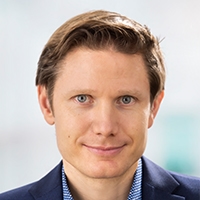
Robert Zeiser
Freiburg, Germany
Albert-Ludwigs-Universität Freiburg
Robert Zeiser
Prof. Robert Zeiser serves as Full Professor and Director of the Division of Tumor immunology of Medicine at the Freiburg University Medical Center. He serves as clinician with a focus on immunotherapy for cancer and allogeneic stem cell transplantation for leukemia. Prof. Zeisers laboratory research is focused on graft-versus-host disease, tumor immunology, in vivo imaging and oncogenic signaling. His group has made major contributions to the field of pre-clinical and clinical research with senior or first authorships in Nature Medicine, Nature Communications, Journal of Experimental Medicine, Science Translational Medicine, Blood, Leukemia, New England Journal of Medicine and Journal of Clinical Investigation. Prof. Zeiser authors more than 240 peer-reviewed publications and 14 book chapters and his work is cited > 14 000 times (h factor is 63, source google scholar). For his work Prof. Zeiser received several Science Awards in Germany, Europe and the United States,
Prof Zeiser is the speaker of the newly awarded Collaborative Research Center 1479 OncoEscape. He has served as a reviewer for Science, Nature Medicine, Nature Immunology, Nature Methods, Nat. Reviews Immunology, and others.
Prof. Zeiser is Section Editor of the Journal Blood.
